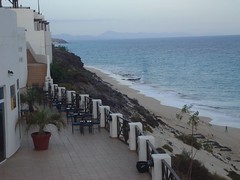Users of the Yahoo and Microsoft instant messaging programs can now contact each other directly.
The two firms have released software that ties the two networks into a huge community of 350 million users.
The trial software allows people to swap text messages but will eventually let people talk to each other too.
The move marks a break with the past when operators of the big instant message systems resisted calls to open up their networks.
Chat channel
AOL, Microsoft and Yahoo operate the largest instant messaging networks and, until recently, anyone wanting to talk to friends using different text chat systems had to maintain several separate accounts.
Users can sign up for the test software via the Yahoo and Microsoft messaging sites. Only those using the latest versions of the IM software will be able to join the trial. Eventually the software will be made available to every user.
The software uniting the two networks will use icons next to people’s names to denote whether that person is on the Yahoo or Microsoft system.
“It does make it easier for many consumers who will need to keep one less instant messaging system up and running now,” said Jupiter analyst Michael Gartenberg.
The tie-up makes good on a promise the two companies made in late 2005 to get their networks linked.
The trial version of the software is being made available to users of the two networks in Argentina, Australia, Brazil, Canada, China, France, Germany, Hong Kong, India, Italy, Korea, Mexico, the Netherlands, Singapore, Spain, Taiwan, Turkey, the UK and US.
While AOL, Microsoft and Yahoo have the most users of IM, there are many other operators of these text chat systems. Some of those operating IM networks, such as Google, or developing the software, are pushing systems that use more open ways of letting users chat.




